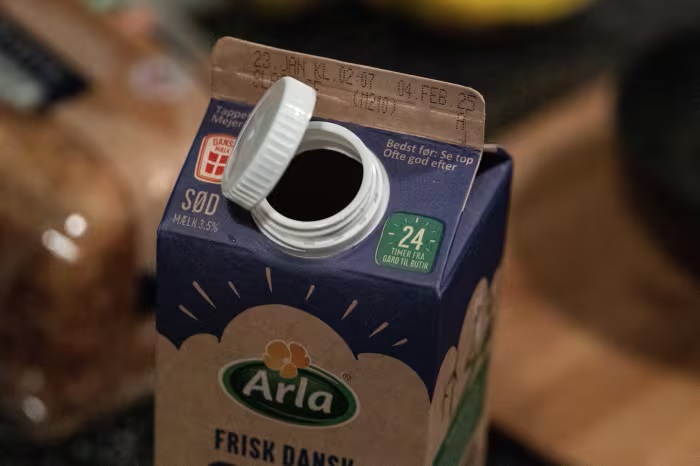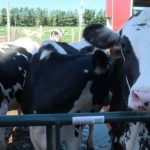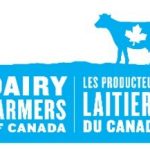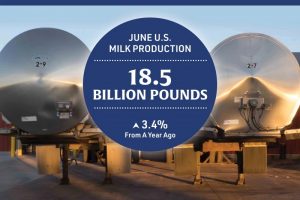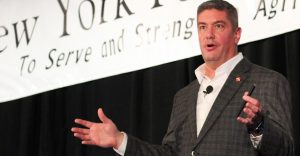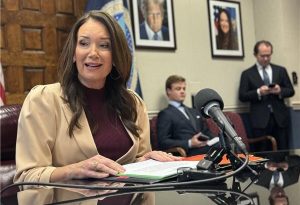
Companies want to promote their green credentials, but doing so can sometimes come at an unexpected cost.
Danish-Swedish dairy company Arla Foods late last year posted on social media that it was going to trial a cow-food additive on some of its U.K. farms aimed at reducing methane emissions in its herd.
The additive Bovaer had been tested for more than 15 years and was in commercial use for two, after the European Food Safety Authority and the U.K.’s Food Standards Agency approved it and said Bovaer helped cut methane emissions from dairy cows and didn’t enter cow’s milk.
But Arla’s initial tweet made more noise among conspiracy theorists than its target audience, leading to a social-media storm in which Arla’s post was viewed millions of times, alongside false accusations that the company was looking to poison consumers.
According to posts on X, some customers were pouring Arla milk down their sinks and toilets and throwing the company’s butter in the trash, despite no evidence that Bovaer could enter the human food chain.
“You’re not experimenting on me and my family, thank you,” read one post on the social-media platform. “I’ll simply avoid your products. Cows have been farting since cows existed, and the climate has always changed. Let it be.”
Negotiating online conspiracy theories is a challenge companies like Arla increasingly have to prepare for as they promote scientific endeavors aimed at benefiting the climate. It is a challenge that is only likely to grow as social-media firms remove fact-checking from their operations.
“I’m not surprised [this happened], but in truth this could have been any other brand,” said Pallavi Sethi, a policy fellow at the Grantham Research Institute on Climate Change and the Environment focusing on climate change misinformation.
Sethi said that since the pandemic, there has been a rise in mistrust of institutions like governments and companies and those in positions of authority, leading to more conspiracy theories. Those often include worries around health, climate and social freedoms.
Sethi said conspiracy theorists cherry pick data to push their theories, including the cost of moving to net zero. “Some parts of the press often tell you that net zero is very expensive,” Sethi said. “What they fail to tell you is that the cost of climate inaction far outweighs the cost of transitioning to net zero. So that is sort of cherry-picking data and that can be used across different types of misinformation narratives.”
Last month, the World Economic Forum released its annual global risk reports and found that misinformation and disinformation ranked fourth highest in its list of material threats. State-based armed conflict was the top risk for 2025, followed by extreme weather then geoeconomic confrontation.
Lucy Chapple, head of communications at London-based public relations firm Flag said that companies trying to combat disinformation should publish fact sheets, Q&As and research papers if they want to get ahead of the conspiracy theorists and stop misinformation from spiraling before it becomes an issue.
“What’s really important is having the facts out there, ideally before any of this comes up, so you can point to something substantiated, ideally by a third party that’s already live,” said Chapple. “If you’re bringing out a new product, that pre-empts any criticism that could be out there that you can point to.”
Arla chose to tackle the problem head on by releasing a set of statements on its website detailing the years of testing that the additive was put through and stressing that it is safe for both cows and humans. Its initial tweet about using Bovaer hadn’t linked to its research supporting its safety.

Cows graze at a dairy farm in Aherla, Ireland. Photo: Paulo Nunes dos Santos/Bloomberg News
“Unfortunately, since we made this announcement, a significant amount of misinformation has been circulating online, and we feel compelled to address this by clearly and openly stating the facts,” the company said in a statement on its website.
It also sat for interviews with media outlets in the U.K. such as the BBC, saying that Bovaer didn’t enter milk and simply worked to suppress methane production inside a cow’s stomach.
“Our commitment to reducing our climate impact is unwavering but we would never do so in a way that jeopardizes the health of our consumers or the welfare of our animals,” Arla said.
Arla told The Wall Street Journal it had no further comment beyond its original statements. DSM-Firmenich, the Dutch research company that makes Bovaer, declined to comment.
Chapple said that focusing on a brand’s key audience is also key. “I think it’s important for brands in these situations to recognize that you don’t need to change the mind of any conspiracy theorists,” Chapple said. “It’s to think about the consumer who might feel sort of genuinely unsure or genuinely troubled by what they perceive to be truthful information that’s actually misinformation.”
Michelle Amazeen, director of the Communication Research Center at Boston University, said that in the realm of healthcare and food, consumers may often have especially strong concerns. “There are probably well-justified concerns among the public and then throw into the mix these unregulated social-media platforms that are designed to inflame emotions and it’s kind of a mess,” she said.
Amazeen highlighted recent cases in the U.S. food industry, such as the lawsuit Tyson Foods is facing over its plans for “climate-smart” beef and claims that its green credentials were overstated. In January, the Food and Drug Administration banned the artificial food dye red 3 over its links to cancer in animals. The dye originally was approved by the FDA in 1969, but wasn’t banned until this month despite multiple reviews. It has been banned in Europe for several years.
However, Amazeen said that in most cases fact-checking and “prebunking” can help to avoid misinformation from going viral.
“There is evidence that fact-checking can reduce people’s misperceptions around disinformation,” she said. “An alternative is prebunking or relying upon inoculation theory to try and forewarn people that, ‘Hey you need to be paying attention to illogical fallacies, cherry picking nonexpert sources who are trying to come off as experts, whatever it is, so you can psychologically build somebody’s, immunity against the type of arguments you anticipate.’”
You can now read the most important #news on #eDairyNews #Whatsapp channels!!!
🇺🇸 eDairy News INGLÊS: https://whatsapp.com/channel/0029VaKsjzGDTkJyIN6hcP1K
